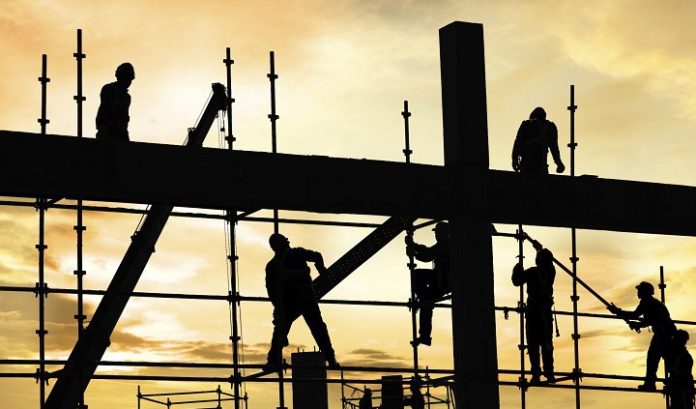Regulation and compliance
Licensing procedures
Must foreign designers and contractors be licensed locally to work and, if so, what are the consequences of working without a licence?
Foreign designers and contractors must comply with the same licensing requirements applicable to domestic designers and contractors.

All contractors involved in public procurement are required to register with the Construction Industry Development Board, a body created in the terms of the Construction Industry Development Board Act No. 38 of 2000 to undertake, carry out or complete construction works for public sector contracts, failing which the respective contractor will be guilty of an offence and may be held liable for payment of a fine not exceeding 10 per cent of the contract value.
In addition, all foreign designers or professional staff are required to register with the relevant professional bodies; namely, architects with the South African Council for the Architectural Profession, engineers with the Engineering Council of South Africa and quantity surveyors with the South African Council for the Surveying Profession.
Competition
Do local laws provide any advantage to domestic contractors in competition with foreign contractors?
While compliance with the broad-based black economic empowerment regulations may be easier for domestic contractors, to the extent that foreign contractors are able to comply with these regulations, local laws do not overtly provide an advantage to domestic contractors in competition with foreign contractors.
Competition protections
What legal protections exist to ensure fair and open competition to secure contracts with public entities, and to prevent bid rigging or other anticompetitive behaviour?
Among others, the following legal protections exist to ensure fair and open competition to secure contracts with public entities in South Africa:
- section 217(3) of the Constitution of the Republic of South Africa 1996;
- the Preferential Procurement Policy Framework Act No. 5 of 2000;
- the Preferential Procurement Regulations 2011;
- the Promotion of Administrative Justice Act No. 3 of 2000;
- the Prevention and Combating of Corrupt Activities Act No. 12 of 2004; and
- the Competition Act No. 89 of 1998, which regulates fair and open competition by providing rules governing the relationships between the different stakeholders involved in business activities; namely, competitors, suppliers, customers and joint venture partners. The Act prohibits restrictive horizontal and vertical practices wherein agreements are reached that substantially prevent or lessen competition in a market or involve the fixing of prices, division of markets through allocation of customers or collusive tendering. In addition, the Act also establishes three competition regulatory authorities to investigate and enforce any anticompetitive behaviour: namely, the Competition Commission of South Africa, Competition Tribunal and Competition Appeal Court.
Bribery
If a contractor has illegally obtained the award of a contract, for example by bribery, will the contract be enforceable? Are bribe-givers and bribe-takers prosecuted and, if so, what are the penalties they face? Are facilitation payments allowable under local law?
The Prevention and Combating of Corrupt Activities Act No. 12 of 2004 regulates offences in respect of corrupt activities relating to tenders and the awarding of contracts. The Act states that any person who is found guilty of an offence of corrupt activities relating, inter alia, to the procurement and withdrawal of tenders will be liable to a fine or imprisonment. In respect of facilitation payments, these payments constitute unauthorised gratification and amount to an offence of corrupt activities.
An aggrieved party may approach the court to request that an agreement concluded through a corrupt process be set aside.
Reporting bribery
Under local law, must employees of the project team members report suspicion or knowledge of bribery of government employees and, if so, what are the penalties for failure to report?
In terms of section 34(1) of the Prevention and Combating of Corrupt Activities Act No. 12 of 2004, any person who holds a position of authority and who knows or ought to have known or suspected an offence, such as fraud, theft, extortion, forgery or uttering a forged document, involving an amount of 100,000 South African rand or more, must report this knowledge or suspicion, or cause it to be reported. Failure to report the knowledge or suspicion will render the person guilty of an offence according to section 34(2) of the Act and the guilty person may be liable for a fine or imprisonment, depending on the circumstances and the respective court imposing the sentence.
Political contributions
Is the making of political contributions part of doing business? If so, are there laws that restrict the ability of contractors or design professionals to work for public agencies because of their financial support for political candidates or parties?
There are no laws requiring parties to make political contributions to do business in the territory or jurisdiction, nor is it the general practice of political parties to request political contributions, as this would amount to corrupt activity. It is generally accepted that business is won through the tender processes that the service provider scoring the requisite points based on various contributing factors will be awarded the contract. Contributions or donations may be seen to sway these decisions and are accordingly highly regulated. The Political Party Funding Act No. 6 of 2018 regulates how donations or contributions are to be disclosed and managed by the political entity receiving the contribution, to promote transparency and prohibit certain forms of donations. As such, contractors or design professionals are not restricted from doing business on the basis of making political contributions; however, such contributions will be and must be disclosed and must conform to the prescripts of the Act.
Compliance
Is a construction manager or other construction professional acting as a public entity’s representative or agent on a project (and its employees) subject to the same anti-corruption and compliance as government employees?
The Prevention and Combating of Corrupt Activities Act No. 12 of 2004 provides for the strengthening of measures to prevent and combat corruption and corrupt activities by all persons, public officials, foreign public officials, members of legislative authority, judicial officers and members of the prosecuting authority. Section 6 of the Act relates to offences for corrupt activities relating to agents and sets out instances in which an agent may be found guilty of the offence of corruption or corrupt activities. A construction manager or other construction professional acting as a public entity’s representative or agent would, therefore, be subject to the same anti-corruption and compliance rules as are applicable to government employees (public officials). In addition, the Construction Industry Development Board have further published a Code of Conduct for all parties engaged in public and private construction procurement that regulates acceptable and unacceptable conduct by any party to this process, including the conduct of an employer’s representative or agent, or both.
Other international legal considerations
Are there any other important legal issues that may present obstacles to a foreign contractor attempting to do business in your jurisdiction?
A foreign contractor that employs foreign employees will be required to ensure that all employees have a valid work permit or visa, or both, to enable them to earn an income in South Africa. Foreign nationals must also comply with applicable taxation laws and regulations as prescribed in the Income Tax Act and regulated by the South African Revenue Services, such as registering for payment of income tax earned from a South African source as a non-resident for tax purposes. Furthermore, it is necessary for a foreign company to register, in accordance with section 23 of the Companies Act 2008, with the Companies and Intellectual Property Commission as an ‘external company’ to be entitled to conduct business in the jurisdiction.
In an effort to address racial imbalances and inequality imposed during the Apartheid era, South Africa has adopted the policies of black economic empowerment (BEE) and affirmative action (AA) governed by the Broad-Based Black Economic Empowerment Act. Government and certain companies and entities require all economic participants, including foreign contracting companies, doing business with them to adhere to the BEE and AA policies and regulations, which may affect a foreign contractor’s ability to compete with other contractors in the market.
Law stated date
Correct on
Give the date on which the above content was accurate.
20 May 2020



